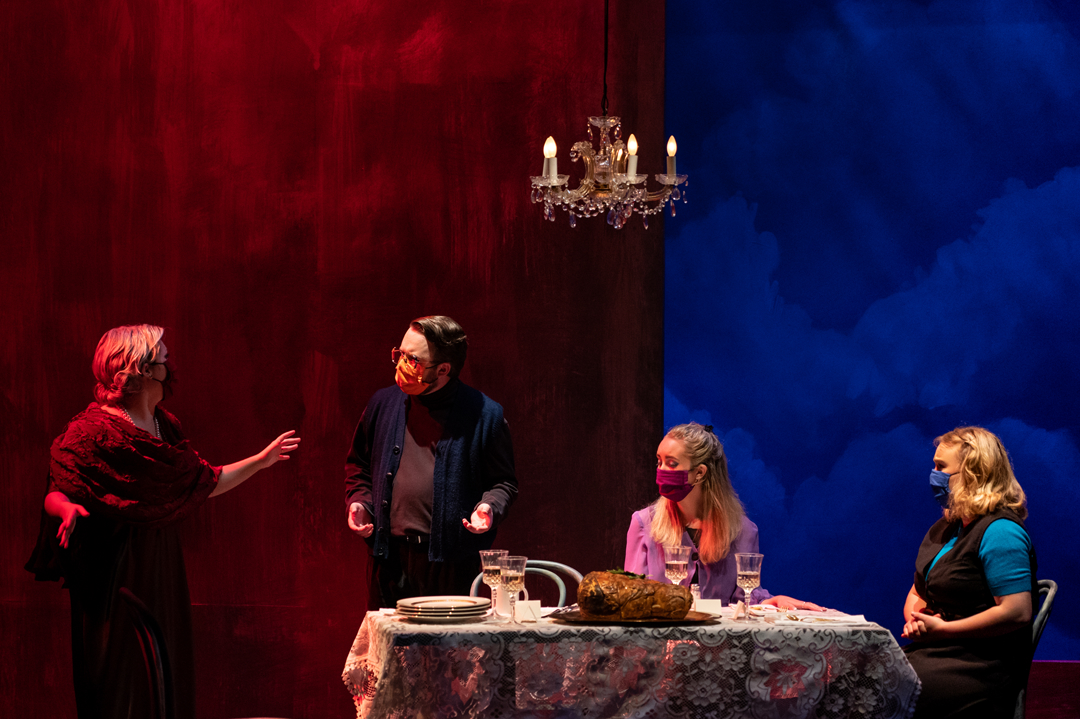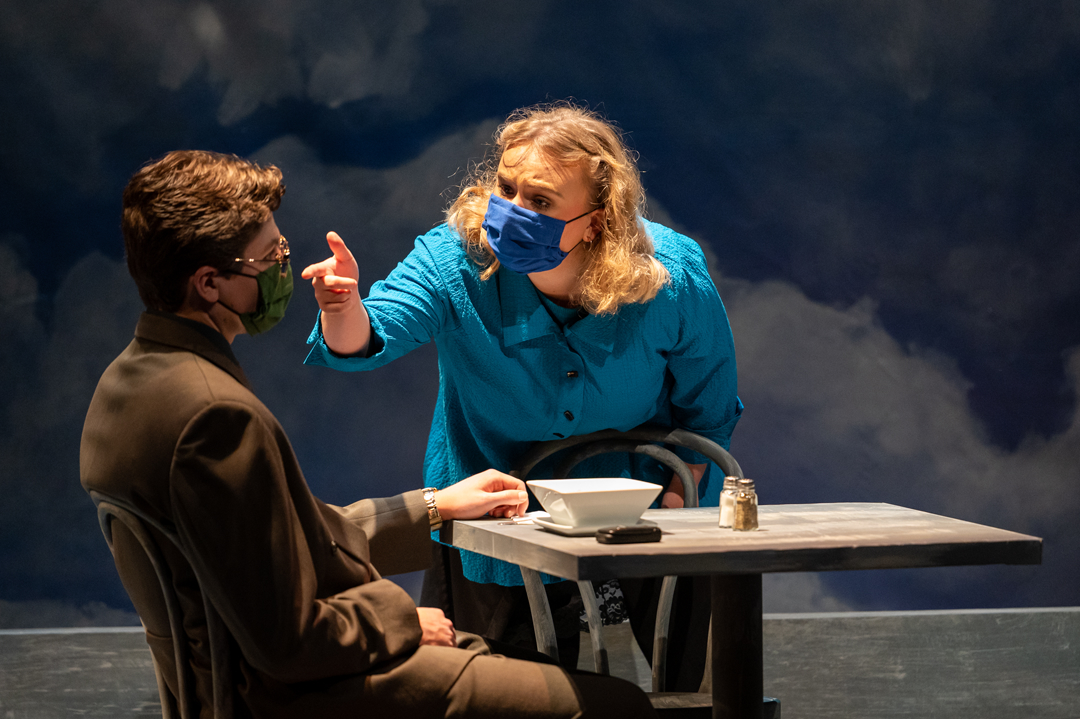
When a phone at a cafe won’t stop ringing, Jean’s decision to answer it launches her into a dead man’s complicated family affairs. As she tries to give his loved ones some solace for his death, despite never knowing him, Jean is forced to confront her assumptions about people and the world and what meaning she gives to her life.
If you’re willing to sit through a rough first half for some fantastically ridiculous payoff in the second half, check out Dead Man’s Cell Phone playing at the Phoenix Theatre in Victoria.
Straight from the title, Dead Man’s Cell Phone, one can assume that cell phones play an important part in the play. On top of Jean navigating the complicated drama of the Gottlieb family, while also lying to them about Gordon’s final words or true thoughts of his family members, there is the question of the role that Gordon’s cell phone plays in the plot. While a source of connection, it serves to isolate Jean from making a true connection to the Gottlieb family, specifically Dwight, as the two develop romantic feelings for each other.
Overall, the first act tends to drag in setting up its characters for the second act. The second act is more engaging than the first, as the things that end up dragging get dropped, which includes the theme of isolation through technology.
But the theme of isolation through technology can feel a bit forced in places, especially in the first act.
Every major cast member has an opinion about cell phones and how they can serve to isolate people from each other. And it’s all more or less the same opinion. That cell phones are isolating, that people view others as strangers and therefore have no qualms about talking loudly about personal details in public, that people are self-absorbed, and so on. Even Jean, who relies on Gordon’s cell phone to give his family members what they want to hear, has a similar opinion to everyone else. Every time there’s a monologue, it’s almost inevitable that the conversation will turn towards cell phones eventually. Perhaps if there were more than one opinion with slightly different examples, this wouldn’t be this noticeable. As such, the first act, focused on the human drama of Jean trying to navigate her various lies, tends to drag and can feel repetitive with the similar monologues. That is, until the second act.

The second act opens up with the ghost of Gordon himself finally giving the audience some answers behind who he really was. And the rest of the plot goes off the rails in the best way possible. The play fully embraces its identity as an off-beat comedy and goes openly ridiculous with it. There’s a fight scene with a lamp shaped like a kidney, a dance scene, and a conversation in a strange heaven. The weirder it gets, the more willing I was to go along for the ride.
Jean, who can come across as hopelessly naive to the point of second-hand embarrassment, shines in how desperate she is to keep Gordon’s cell phone, and her own wake-up call at the end feels earned. And it also helps that the monologues about cell phones peter out as well, to the point where I wondered why the monologues were even used if those themes didn’t really work in the play’s favour.
It wouldn’t be a Phoenix play without a great set and lighting. While it initially looks pretty simple, a barebones cafe that stays on stage the entire play, the way that the cast interacts with it makes it work and feels lived in. The ensemble adds a lot of extra flavour to the set, like dancing during a set change to keep things interesting for the audience, or as nameless extras that react to the strange conversations or events that the main characters are involved in. There’s also a great moment with a prop to represent an airplane ride — I won’t elaborate as not to spoil it. There are also some hidden set changes that are scattered throughout the set that are more detailed, and it adds to the world as well.
In terms of acting, the standout performance is Ryan Kniel as Gordon Gottlieb, whose presence as Gordon’s ghost in the second act helps to upend and reframe the events of the play. He’s both a scumbag and confident in himself, which clashes perfectly with Jean’s naivety and desperate desire to help his family move on, even though she’s making things worse. The conversation Gordon and Jean have near the end plays to both of their strengths as actors, and analyzes the themes of play much better than the earlier monologues about cell phones in the first act.
All and all, the need to insert the theme of isolation through technology through monologues instead of a more organic approach makes the first act drag at times. Not to the point where it feels like the play is taking forever to finish, but to the point where I didn’t enjoy it at first. But once the second act kicked in, I could see what this play would look like if those monologues didn’t exist. Is it worth sitting through? That’s up to the person watching it.
Dead Man’s Cell Phone runs November 11th to 27th, with options for live streaming on the 19th, 20th, 26th, and 27th.







